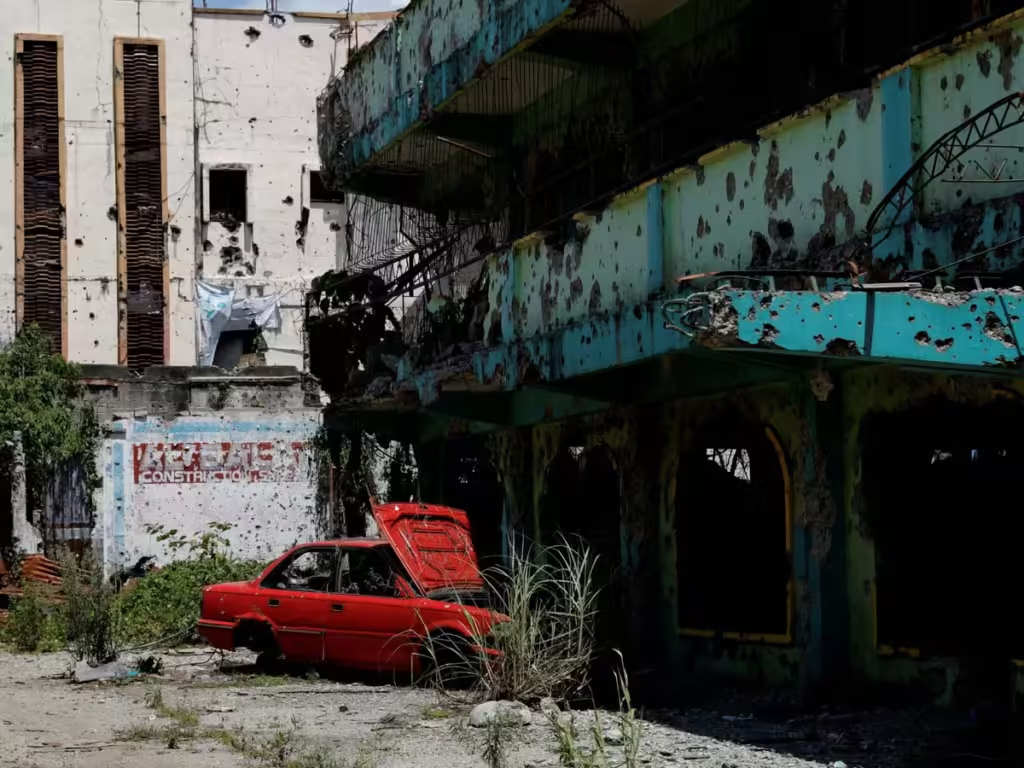We confront an ugly truth as we gaze across the vast waters of the West Philippine Sea. This is not merely a struggle over territory; it is an all-out siege on our identity and the very essence of what it means to be Filipino. With every encroachment from foreign vessels into our waters, we aren’t just witnessing a physical incursion into our maritime rights, but a relentless assault on our sovereignty, our history, and the collective future of our nation. The fight we face in these turbulent waters is emblematic of our identity—our unity is essential, and our voice must resonate with passion and conviction.
The West Philippine Sea encapsulates the aspirations and dreams of our people. Our ancestors traversed these waters, relying on the bounty it provided—not just for sustenance but for economic and cultural vitality. This sea has long been woven into the narrative of our existence, a shared inheritance that tells the story of who we are. Therefore, when we talk about territorial disputes, we are not merely discussing maps and lines; we are delving into a deeper reality that encompasses our heritage, our dignity, and our right to self-determination. But let’s not sugarcoat the gravity of the situation. The encroachment of foreign powers, most specifically China, into our territorial waters is a symptom of a broader geopolitical crisis. It’s about power dynamics, economic exploitation, and global resource control.
However, to merely frame this as a geopolitical conflict is to miss the forest for the trees. At the heart of this struggle lies our very identity as a nation. We have spent centuries fighting against colonization and external interference, yet today, we find ourselves at a crossroads where the struggle seems to be as relevant as ever. There is a dire need for us as Filipinos to unite as one nation. This isn’t just a responsibility of those in government or the military; it is a collective obligation that encompasses every citizen of the Philippines. From the fishermen who risk their lives to navigate the waters of their ancestral fishing grounds to the youth who rally on social media to raise awareness about our plight—every single Filipino has a stake in this narrative. This is not an isolated struggle; it’s a collective endeavor that requires us to awaken a sense of shared responsibility. Historically, our nation has been defined by its resilience and determination to forge its path.
We have a legacy of thriving despite the odds—battling colonial powers, enduring tyrannical rule, and weathering economic storms. Now, as we confront yet another challenge, it is imperative that we channel that spirit of resilience into activism and awareness around the West Philippine Sea. It is time we come together, reject apathy, and reaffirm our commitment to reclaim what is rightfully ours. The call to action must transcend mere rhetoric. We need to mobilize grassroots movements, conduct educational campaigns, and foster dialogue around the importance of defending our sovereignty. There is a misconception that issues surrounding the West Philippine Sea are confined to elite political circles. This stereotype must be dismantled. It’s time for every Filipino to understand that our rights to our waters and resources are foundational to our identity. The livelihood of countless fishermen, the potential for sustainable economic growth through tourism and maritime resources—all of these hinge on our ability to assert our sovereignty boldly.
Furthermore, the youth represent a critical demographic in this struggle. It is their enthusiasm, innovation, and capacity for social mobilization that can propel this issue into the collective consciousness of our society. The new generation must be educated about our maritime rights and the geostrategic significance of the West Philippine Sea. With the power of technology and social media at their fingertips, they can amplify our struggle and reframe the narrative surrounding our identity. This is not just a fight for our present; it is about safeguarding the future for generations of Filipinos who will inherit our land and waters. Yet, this collective effort requires more than awareness—it necessitates action from our leaders as well. The government must pursue a more assertive foreign policy that articulates our claims clearly in the international community. We must cultivate allies who share our concerns and expand diplomatic efforts to strengthen multilateral collaborations. We need to hold our politicians accountable for their actions, ensuring they prioritize national interests over political gains. With domestic priorities often sidestepped, we must remind our leaders that the people are watching—and we will not stand for complacency.
Citizenship comes with responsibilities, one of which is to ensure that our sovereignty is respected and recognized. Our responsibility to future generations transcends politics; it is about legacy. The stories told to our children about how we stood our ground against foreign domination will forge their understanding of patriotism and unity. If we fail to act, we risk allowing history to record that we were too divided, too complacent, or too passive to fight for our rights when it mattered most. Moreover, this crisis presents an opportunity for reexamining our relationships with each other and with the world. In the face of external threats, we must not shy away from reflecting on our unity and strength as a nation.
The West Philippine Sea serves as a reminder that our differences can be set aside for a cause greater than ourselves. We need to cultivate a national discourse that emphasizes inclusivity and collaboration, bridging the divides that often threaten to fracture our society. We must instill in every Filipino an understanding of our maritime boundaries, bolstered by strong narratives that celebrate our shared history and aspirations. The fight in the West Philippine Sea is one in which we must contextualize our identities within the broader historical and social fabric of our nation. Every time a foreign vessel crosses into our waters, it serves as a stark reminder that our shared history is rooted in resistance and resilience. In the international arena, we must wield our story as a powerful weapon to advocate for our sovereignty. Our fight is not just local or regional; it is global. The narrative that frames our situation can position the Philippines as a beacon of democracy and as a steadfast defender of international law. We must connect with nations that uphold similar ideals and challenge any unjust encroachments on our rights.
As we move forward, we must also cultivate a spirit of environmental stewardship in our engagement with the West Philippine Sea. Our waters are rich not only in resources but also in biodiversity that sustains our communities and economies. This is a chance to anchor our struggle in principles that resonate with global movements for environmental justice, framing the conflict not just as about territorial domination but also about safeguarding our home—a vital resource that sustains millions of lives.
In conclusion, let us acknowledge that the battle for the West Philippine Sea is a transformative experience that may define our generation and the generations to come. It is a fight for our identity, our dignity, and our future. We must unite as one nation, not simply because it is politically expedient, but because our sovereignty is intrinsically linked to our identity as Filipinos. Together, let us stand firm in our resolve to reclaim what is rightfully ours. Each citizen must be invested in this cause, as active participants in the narrative of our nationhood. We must demand accountability from those in power and advocate for a renewed commitment to our sovereignty, leading a charge that makes it clear we will not tolerate the encroachment on our rights.
The future of every Filipino depends on this struggle, and our maritime waters serve as a testament to our unity, resilience, and courage. Let us champion the West Philippine Sea as more than just an expanse of water; let it symbolize our unwavering commitment to moving forward as a nation bound by pride, integrity, and a collective destiny. History will remember how we responded to this challenge, and together, we must ensure that it speaks of a resilient and united Filipino people—one that fiercely cherishes its identity and rights as an independent nation.




